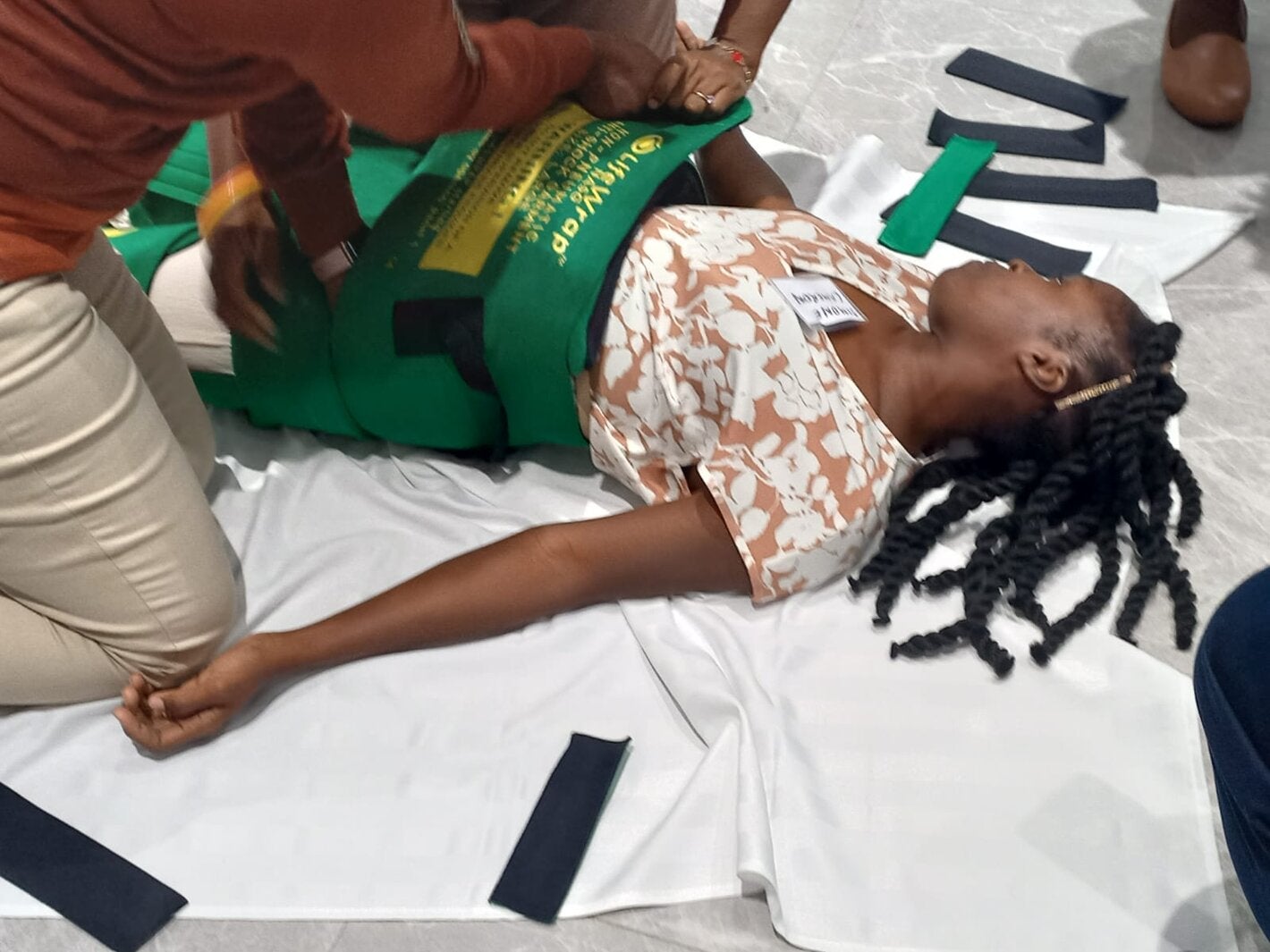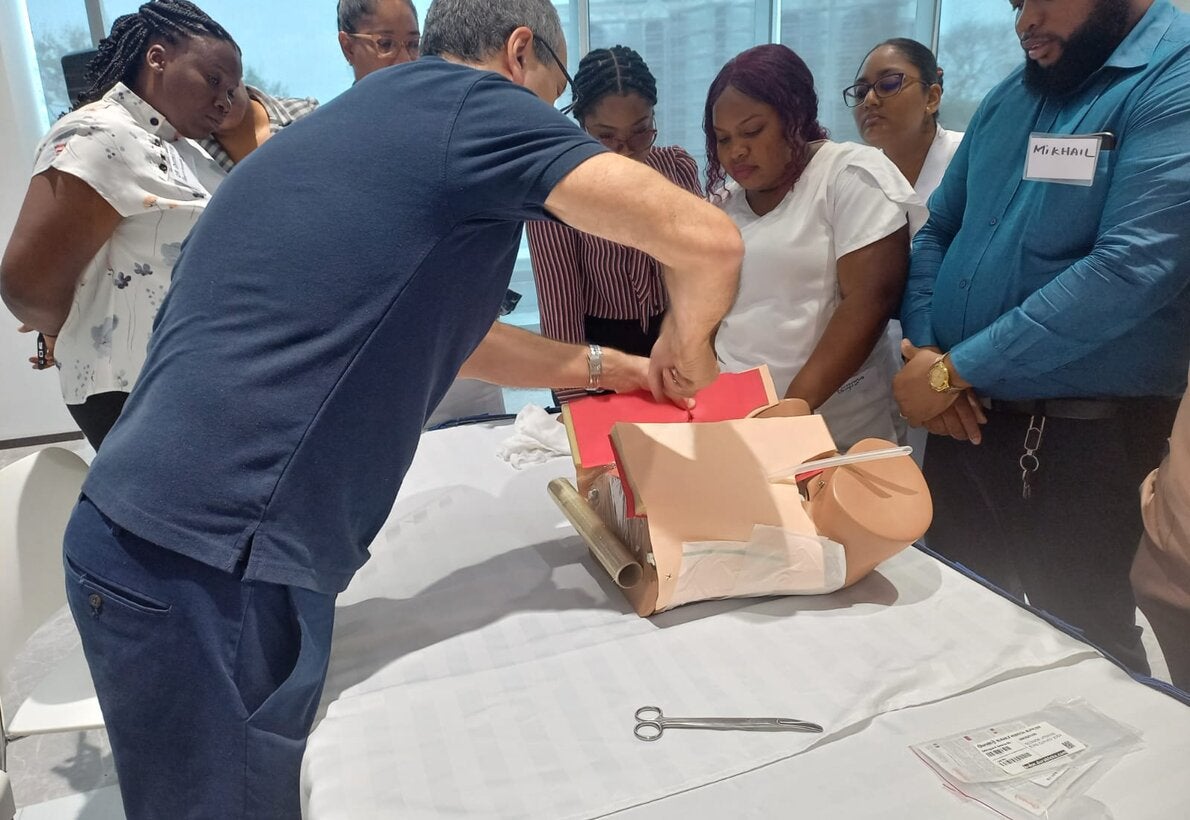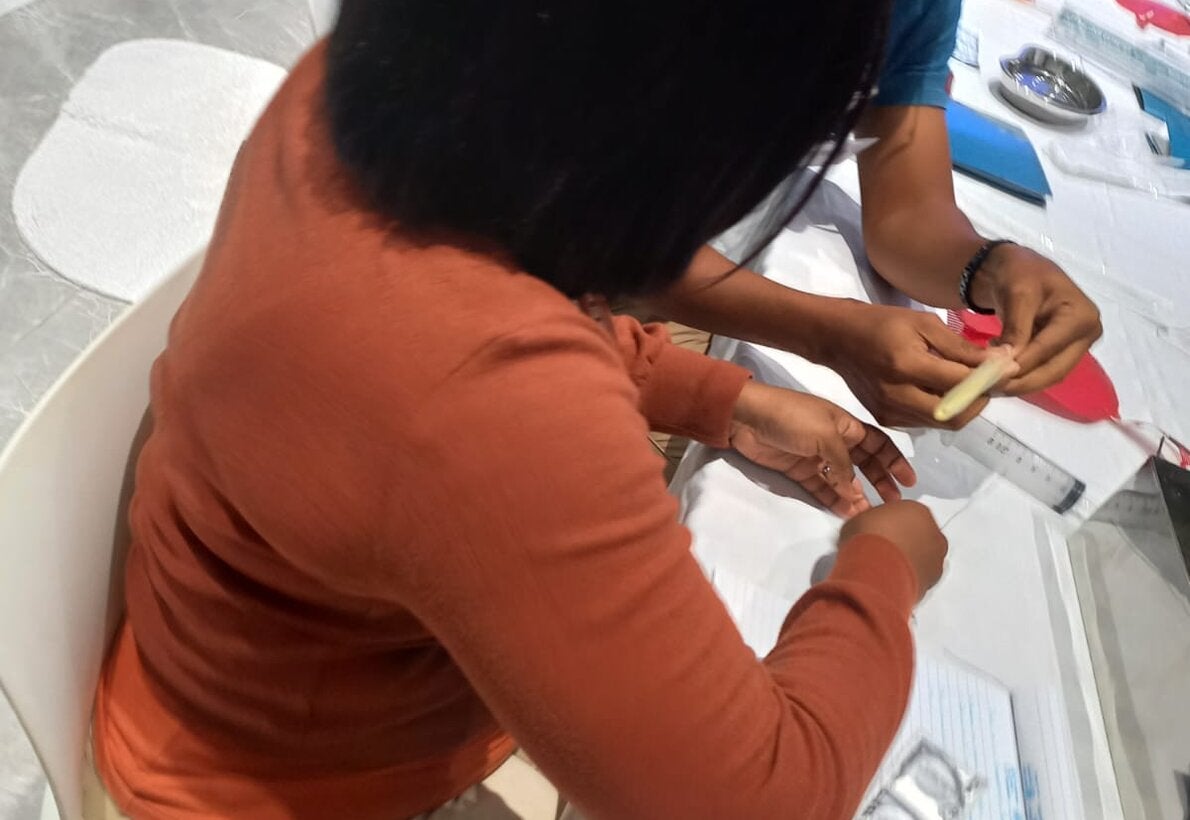
Georgetown, Guyana, 27 June 2024 —The Ministry of Health, Guyana in collaboration with PAHO/WHO Guyana Country Office and the Latin American Center for Perinatology (CLAP), with generous support from Global Affairs Canada Project conducted a two-day workshop in May 2024 on Obstetric Emergencies.
The purpose of the training was to enhance the skills of practitioners in the management of obstetric emergencies. It included topics such as zero maternal deaths from postpartum hemorrhage, maternal sepsis prevention, and hypertensive emergencies. During the training, there were plenary sessions and practical demonstrations on the use of NASG, Hemostatic sutures and ballon tamponade to manage Post Partum Haemorrhage. The training was facilitated by two international facilitators, Dr. Gabriel Osanan, from the Federal University of Minas Gerais, Brazil, and Dr. Claudio Sosa from Universidad de la República, Uruguay.
In his opening remarks, Mr. Daniel Albrecht, PAHO/WHO Representative (a.i.) highlighted that the health sector in Guyana is witnessing an ambitious transformation that aims at reaching all the population in the country. He further mentioned that the PAHO/WHO Country Office was pleased to support this training as it will have a positive impact on improving quality of care, which will contribute to the reduction of Maternal mortality in Guyana.
Dr. Narine Singh, Chief Medical Officer, Ministry of Health Guyana, in his remarks, stated that this training was highly appreciated since it focused on transferring lifesaving practical skills to healthcare workers, who perform deliveries in the most remote areas of the country.
He highlighted that while it is commendable that Guyana has achieved a very high proportion of institutional deliveries, with 98% of pregnant mothers delivering in a health facility with the assistance of a skilled birth attendant, training and quality of care improvement must always be sustained.
Dr. Singh further reiterated that the health professionals taking part in the training would return to their home regions and train their colleagues. The Chief Medical Officer also thanked the health professionals for their participation and encouraged them to learn as much as they could to improve their capacities.
The Government of Guyana has embarked on a health system transformation process that has explicitly adopted the goal of zero maternal deaths and to meet the Sustainable Development Goals (SDG) by 2030. For this purpose, the health sector budget increased threefold from 2022. Also, an expansion of regional health networks has started with the construction of ten new regional hospitals, which will be fully equipped to improve access to quality maternal services.
PAHO/WHO will continue to provide technical support to the Ministry of Health to build the capacity of the health workforce to prevent maternal mortality and morbidity and achieve the SDGs.





